SXSW 2023: Ten Women-Driven Shorts
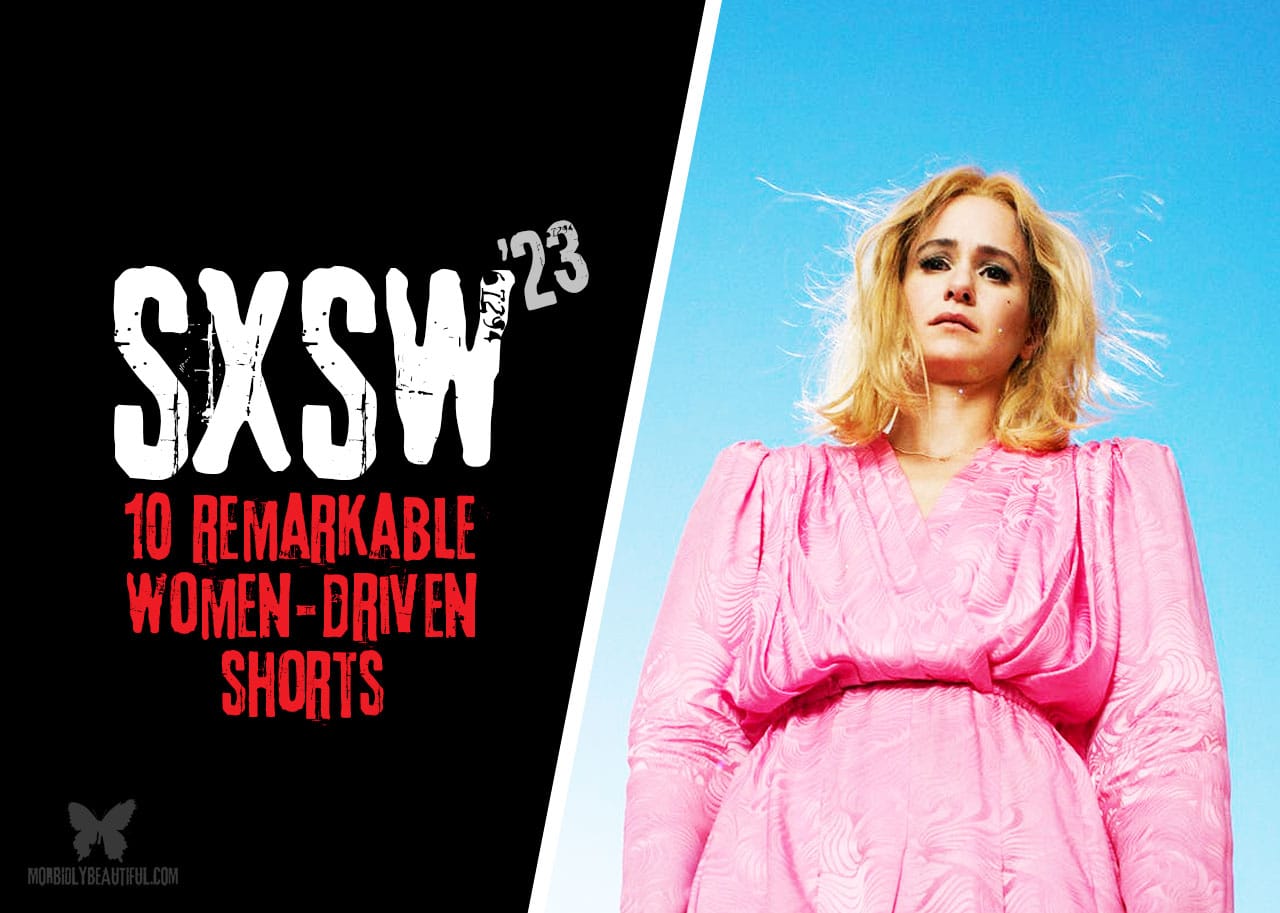


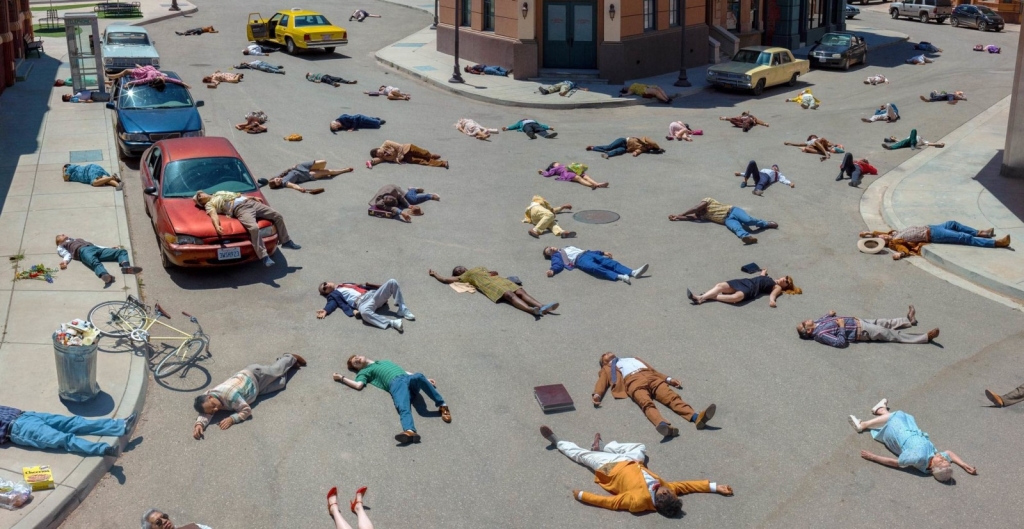
It’s the final part of my four-part SXSW Short Film showcase (read part one, Best of the Fest, here, read part two, Best Animated Shorts, here, and read part three, Best Music Videos, here), and you might be right to ask yourself if I saved the best for last.
As if we needed another reason to love SXSW, I present one of the prestigious fest’s most important and respectable attributes: its unwavering commitment to a diverse representation of voices and visionaries.
Representation was strong in all categories and all aspects — from the stories being told to the storytellers behind those unique and indelible stories. And it’s not just that we got so many women-driven films, but we got films from LGBTQ+, minority, and global voices who don’t always receive this kind of powerful platform and the opportunity to shine on a global stage of this magnitude.
There was such a vast array of truly exceptional women-driven projects showcased at this year’s SXSW that I couldn’t keep this list to just five films. From the surreal to the sublime, the hilarious to the moving, the tender to the challenging, and everything in between.
These are the ten films that most moved me, thrilled me, made me think, or made me feel. They are the films I couldn’t stop thinking about and the ones I couldn’t wait to talk about. In honor of Women’s History Month, I urge you to seek out these filmmakers, support their work, follow their artistic endeavors, and take time to discover some of the most assured and original voices working in the genre today.
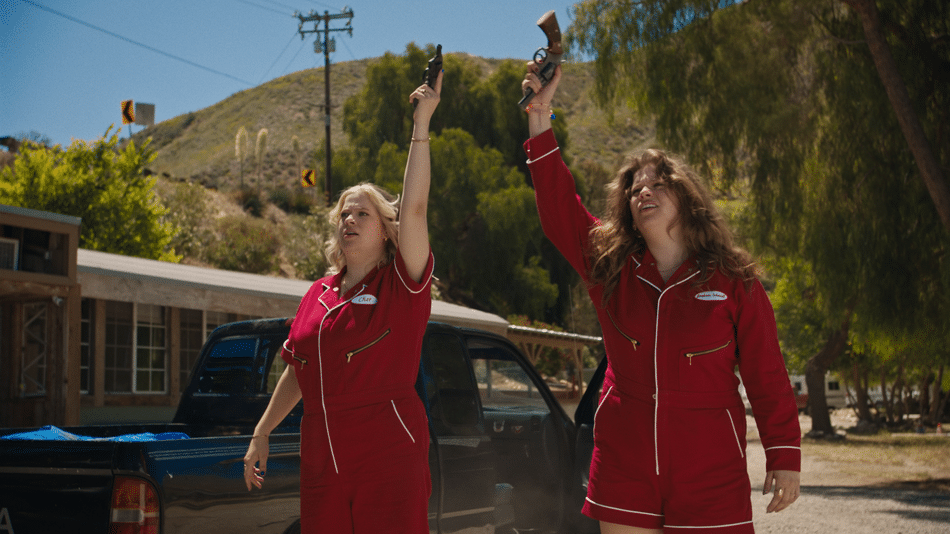
In this quirky, irreverent, impossibly charming comedy short from director Sandy Honig, two eccentric twin sisters embark on a wild adventure after stumbling upon a truck full of pennies.
The film stars the comic duo of Annabel and Sabina Meschke, who wrote the film along with Honig. They play identical twin sisters, Cher and Jacobson-Schmidt, who have shared an identity since birth. From the moment they came out of the womb, they were treated like one person, even sharing a name, with one sister getting the first name and the other getting the surname. They do everything together, including working at the Taint’s Convenience store.
A pair of masked men attempt to rob the store, but they are terrified by the twins, who they assume must be demons. The would-be robbers run off, leaving a truck full of stolen pennies behind.
What follows is a series of wacky vignettes as the now “wealthy” pair take a road trip to celebrate their windfall of at least five dollars. They begin at a diner, where they meet a pair of twin brothers who invite them to a secret club for twins. One delightful dance number and sneaky swindle later, the girls are left to save the day at a dying Penny Museum.
This hilarious little oddball took home the Special Jury Award in the Midnight Shorts category at SXSW, and it’s pretty easy to see why.
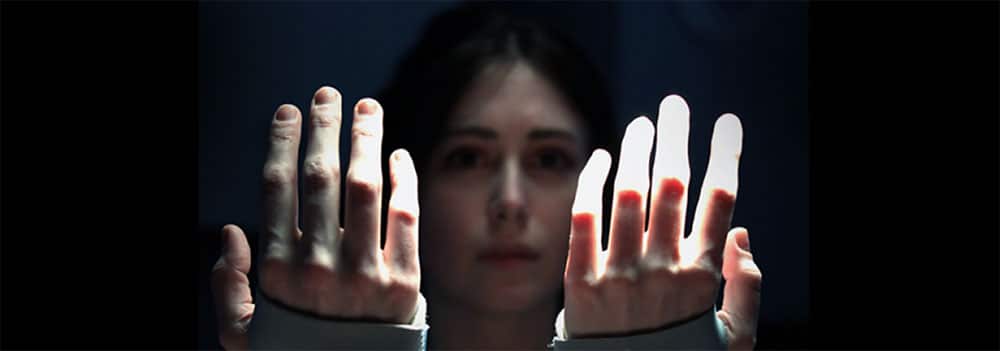
The intriguingly titled Vibrator Girl is about the terrible side effects of compulsive self-pleasure. More substantially, it’s about the dangers of addiction and the heavy weight of distorted body image, especially for women.
A young woman, Marianne, is masturbating with her big blue vibrator. Disturbingly, blue liquid seeps out of her mouth. She visits her doctor to discuss some concerns she’s having, which include hair loss and skin problems. To make matters worse, she’s convinced her vibrator is talking to her. She also confesses the reason she prefers self-pleasure to a romantic partnership is due to significant insecurities regarding her physical appearance.
In the face of such troubling physical and mental ailments, her doctor casually diagnoses her with carpal tunnel syndrome due to excessive masturbation and prescribes a wrist brace and some yoga classes.
Desperate for help, she seeks out an alternative class for women looking to explore their sexuality and get in touch with their erotic divinity in the absence of men or sex toys. But it doesn’t help. And she pushes her fears and anxieties aside for another session with her vibrator — an addiction she knows is killing her but one that compels her just the same.
A surreal exploration into body dysmorphia, loneliness, obsession, and our complicated relationship with sexuality and the pursuit of pleasure, Vibrator Girl cleverly uses a titillating title and subject matter to subvert expectations and deliver a shockingly unsexy and poignant reflection of real-life horror.
Talking about the film, director Kara Strait explains:
“This story forces us to imagine what it feels like to become alienated to one’s own body. It confronts us with the startling failure of healthcare professionals to take care of (or even listen to) women. It questions even the most uplifting and spiritual narratives about what femininity is or should be.”
She goes on to explain:
“It’s obvious why this had to be my first film project as a transwoman – the script resonated with everything I’d shared about my transition: the dysmorphia, the alienation, the desperate need to know myself, and the paralyzing fear that maybe I never would.”
Vibrator Girl is directed by Kara Straitand, produced by Morgane Ciot and Zoe Mintz from the production company Zorg Productions.

Mother of the Dawn is an enlightening documentary short about a virtually unknown matriarchal religion founded in Brazil by a charismatic truck driver turned medium, mentor, and spiritual guru.
In the early 1950s, in a remote corner of Brazil, a female truck driver named Tia Neiva started having visions of extraterrestrial spirits. Claiming she could always see and talk to spirits, even from a very young age, she realized she could also see events before they happened. She began to hone her skills and built a community of like-minded individuals. That community eventually became a religion called Vale do Amanhecer (Valley of the Dawn), which drew thousands of mediums to learn and grow under Neiva’s mentorship.
Practitioners of Valley of the Dawn, which now boasts 800,000 followers, incorporate various elements of Christianity, Spiritism, Umbanda, and religious beliefs in UFOs into their spiritual practice.
Told through interviews with Neiva’s daughter and followers, as well as footage of the practicing community of believers, this eye-opening documentary introduces the world to a religion they’ve likely never heard of. And even if you’re non-religious or think Valley of the Dawn’s belief system is a little too eccentric to take seriously, it’s fascinating to see a woman-centric religion take hold when the vast majority, if not all, world religions are inherently patriarchal and often oppressive to women and even misogynistic.
In several religions, women are considered evil temptresses not to be rusted. Religious texts are full of male Gods, male prophets, male saints, and male heroes. The books are written by men and interpreted by men. In many religions, both menstruation and pregnancy are treated as impure or ungodly. In many religious teachings, strict gender roles are vehemently reinforced.
Neiva might have told her followers to prepare to receive spaceships, which may or may not sit right with you, but she also cultivated a loyal and reverent following of men and women alike that has endured long after her death in 1985.
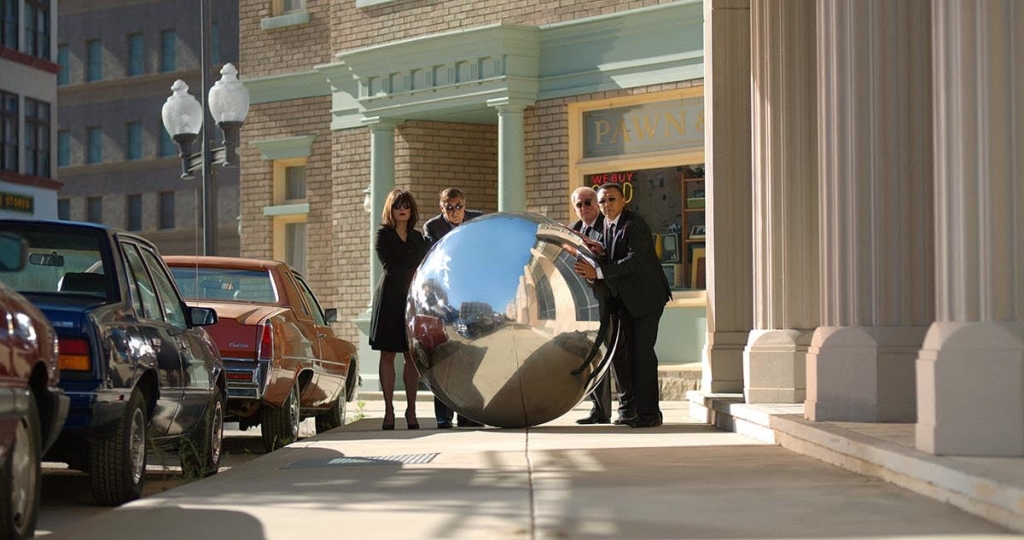
This strange but hypnotic film begins in a quaint, All-American town — a Lynchian suburb of deceptive perfection. As everyday folks go about their days, four individuals dressed in black and wearing sunglasses slowly start pushing a giant silver orb. Then, without warning, they give the ball a shove and send it hurling down the road, ricocheting like a pinball off of objects and mowing everyone down in its destructive path.
The surreal short from artist Alex Prager attempts to capture the pervasive sense of cultural anxiety we’re now all too familiar with.
Is there a way to escape the mounting fears and horrors that seem to threaten the very nature of our existence — whether individual or societal, real or perceived, emotional or physical? Must we face them head-on or try to flee while we still can? In a climate of uncertainty and a future that feels doomed, is there anything to do other to run?
Conceived during the pandemic, Run tackles the pain of emotional upheaval. As Prager explains:
“You can fill in the blank [with] any fear that felt overwhelming or out of our power of control. That’s what it’s symbolic of, and it’s a state that I think we’ve all been tiptoeing around or trying to ignore.”
Prager first had the idea for the surreal story of Run when she came across a song of the same name by the musician Ellen Reid — part of a larger opera released in 2019 — while driving her son to school one day. Responding to the emotion encapsulated in the song, she felt a form of catharsis and vowed to bring those mental images to life.
Playing out like an absurdist Greek tragedy, or a dark religious allegory featuring the four horsemen of the apocalypse, Run exemplifies the feeling that what happens next is out of our control.
One day, when we least expect it, likely when we’re in the middle of doing ordinary tasks in our ordinary, everyday lives, unknown forces (call it the universe, chance, a higher power, nature, or simply the inevitable trajectory of mankind’s destructive path) will push another ball of rampaging horror our way, and there’s nothing we can do to stop it, prepare for it, or avoid its path. The only comfort we take is knowing we’re all in this together.
We’re all just pawns in a bigger game. And the only thing we can really do is hope the ball doesn’t come directly at us.
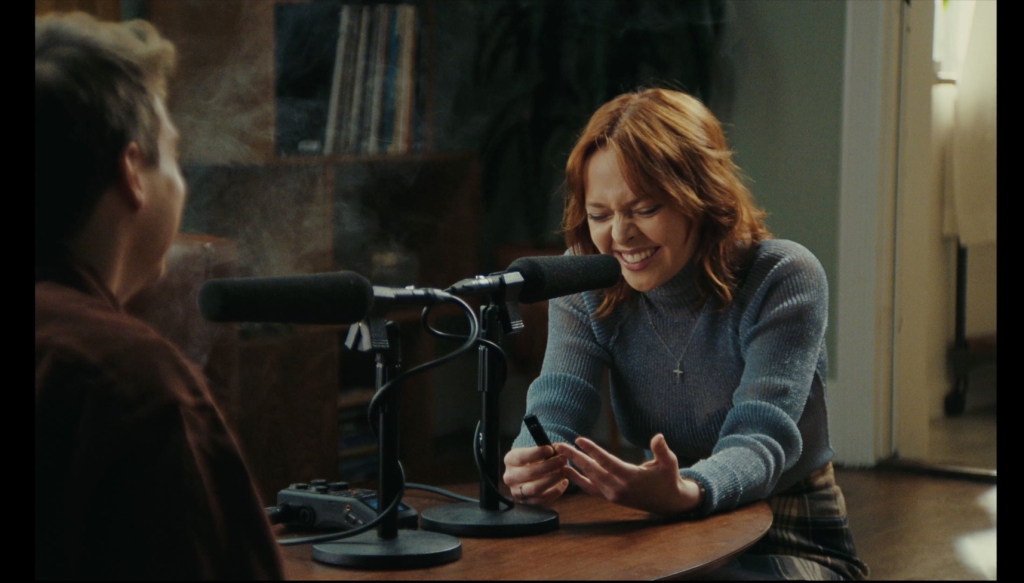
Unsurprisingly, many of the most powerful and affecting films out of SXSW revolve around our complicated and often confounding relationship with social media and the internet. It’s odd and, in some respects, quite unsettling that so much of our identity — how we define ourselves in relation to the rest of humanity — is shaped by an inherently manipulated and inauthentic world.
I Probably Shouldn’t Be Telling You This from Emma Weinswig cleverly explores that faux fantasy cloaked in transparency that creates false expectations and fosters rampant insecurities.
As viewers, we’re dropped into the middle of a podcast taping with popular online personalities Minna and Frank. What follows is a cringe-inducing exchange between the incel-adjacent Frank and the intentional embodiment of the madonna-whore fantasy, Minna.
Minna openly brags about being a compulsive liar who has crafted a naughty schoolgirl image despite claiming strong Catholic ideals about virginity and saving herself for marriage. She’s self-effacing and relatable, selling that “oh so real” authenticity that’s intoxicating. Even as she confesses she can’t be trusted, Frank fawns over how open, honest, and vulnerable she’s being. And he praises her for being real without being annoying, failing to realize the irony of her carefully-crafted online persona.
Patting each other on the back for their noble pursuit of truth and unveiled candor, it’s obvious neither one of them is as forthcoming as they pretend.
Seduced by Minna’s intimate revelations, Frank inadvertently reveals his own insecurities and fantasies, causing him to crash into reality and delete his own confessions.
Ultimately, we’re left to question whether any of what we’ve seen or heard has been real and whether genuine connections are even possible in a world constructed entirely of smoke and mirrors. And if that doesn’t feel like it expertly hits the proverbial nail on the head, you haven’t been paying enough attention.
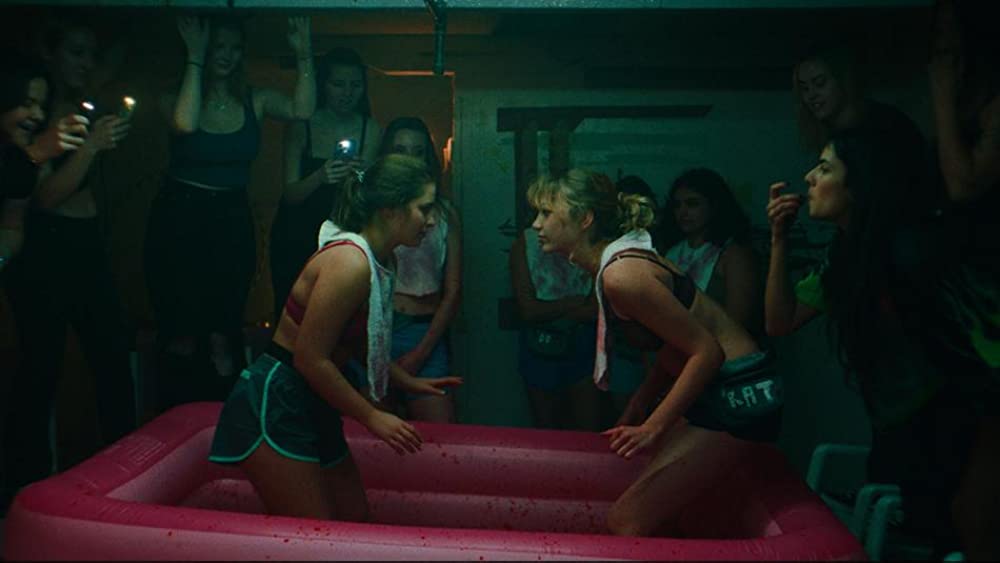
It’s not a bold statement to assert that the most authentic and fully-formed depictions of female relationships come from women who are able to bring lived-in experiences to the screen. Even for heterosexual women, the most significant and defining relationships of their lives are often with other women rather than men. It’s friendships rather than romantic entanglements that truly shape us — especially those friendships formed during the most formative years of adolescence and young adulthood.
And while much has been said of empowering sisterhood and the unwavering support women often offer each other, there’s a darker truth that this stellar short boldly brings into the light.
For many women, young women especially, it’s not the male gaze that causes the most obsessive focus and anxiety. It’s how they are perceived by their peers, by other women they envy or admire. Validation from other women is the holy grail when it comes to feeling accepted, valued, and achieving a sense of belonging. As women, we compare ourselves to other women, worry about how we measure up, agonize over what they think of us, and desperately seek to belong to a tribe.
It’s precisely this phenomenon that makes young women eager to pledge to a sorority and even undergo brutal and humiliating hazing in the hope of being accepted.
The provocatively titled Scotty’s Vag follows a young pledge, Scotty, as she subjects herself to bizarre bonding rituals and hedonistic excess for a chance to impress the ultra-cool and beautiful Hunter, the woman she hopes will become her sorority big sister. While Scotty is a sheltered virgin from a strict Christian home, Hunter is a woman of the world who even sports a pierced vagina.
As the night progresses, Scotty realizes she’ll stop at nothing to prove herself and earn her place among the female alphas.
Writer-director Chaconne Martin-Berkowicz tells raw, sensual stories about female relationships, sexuality, and the moral grey areas in which they exist. She is a writer on Amazon Freevee’s Cruel Intentions and previously wrote for Amazon’s I Know What You Did Last Summer.

An absolutely shattering short about child abuse, It Turns Blue begins with a father painting his little girl’s room blue. We don’t see it happen, but the three-year-old girl accidentally knocks the father’s phone into the paint, sending him into a fit of rage in which he savagely beats the girl.
The man calls his sister, Pari, for help, and she comes over to help him cover up his horrible deeds before the girl’s mother arrives to pick her up. Pari knows that if the mother sees what he’s done, he’ll never be able to see her again. Likewise, the child will be out of the aunt’s life as well, and she is not prepared to let that happen.
Through a series of games and physical masking of the wounds, Pari successfully manipulates the girl into believing nothing bad happened to her — or so it seems. But a pitch-perfect, gut-wrenching ending proves a secret this terrible doesn’t stay hidden for long.
Writer-director Shadi Karamroudi is an Iranian actress, director, and screenwriter. She has appeared in multiple feature films, shorts, and theatrical productions, and her work as a performer has been showcased and recognized at prestigious festivals like the Venice International Film Festival and the Cannes Film Festival. She’s also an accomplished, award-winning filmmaker. Her latest short, It Turns Blue, was recognized as the Jury Award winner at SXSW “for its impeccable performances, its provocative complexity, and its deeply moving story.”
As explained by the jury:
“This film’s impact was both immediately forceful and relentlessly lasting. By not shying away from the complexities of human life and its darkest reaches, this film is both challenging, transportative, and effective.”
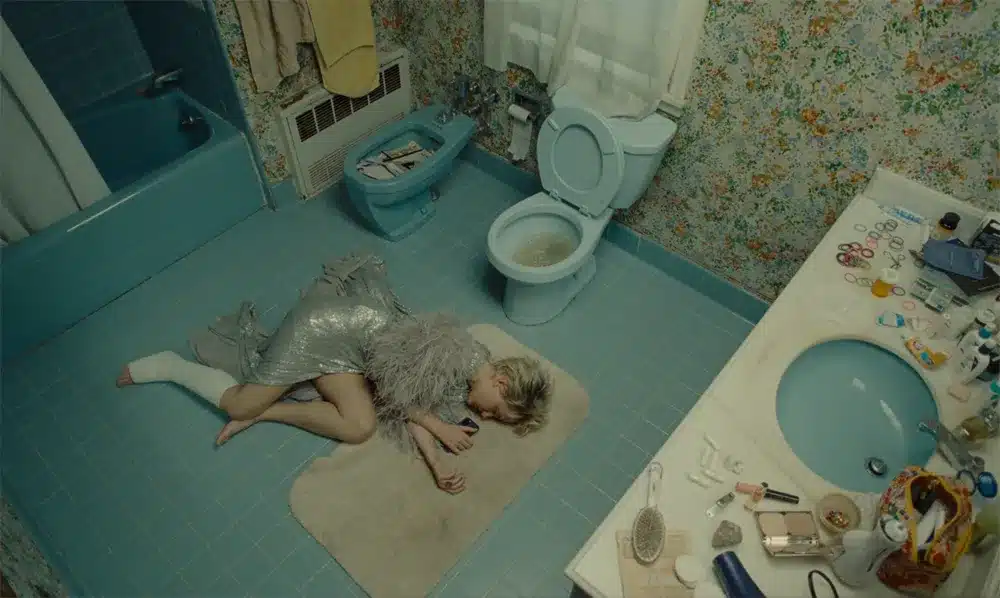
This stylish and surprising short about the perils of modern dating begins with a woman, Sally (Lucy McKendrick), mournfully watching an old romantic movie as she nurses a broken leg. Lonely and isolated, she begins the faithful routine of swiping profiles of potential mates on a dating app. She finally lands on the handsome Richard, and it’s a match.
Richard immediately fits that “too good to be true” mold as he patiently talks to her for hours, listening to her problems, comforting her, making her laugh, and breaking up the monotony of her home-bound days with steamy phone sex.
Our hearts sink when the conversation inevitably turns to the potential of meeting in person, something Richard has been reluctant to do. I’m so busy, he protests. But she desperately wants this to be real, confessing the depth of her feelings. He hems and haws until she reveals a painful secret. Her mother recently passed away, and she is not dealing with it well. Moved by her vulnerability, he quickly changes his tune, promising he will find a way to make it happen.
The two finalize plans to meet in person, but Richard bails at the last minute. We know where this is headed when he suddenly has a family emergency. Wouldn’t you know it, his mom was in an accident, and she is in bad condition. She’s so bad, in fact, that she needs an emergency kidney transplant. Of course, Richard can’t afford it. He’s desperate. Where will he turn? Who could possibly be kind enough to help him?
Lucy volunteers to write him a check for the whopping $4,000 he needs. She’ll put it in the mail right away. But, uh-oh, the check was mysteriously lost in the mail. “Don’t cancel it,” he urges, “in case it arrives. But you better go ahead and write me another one, just in case. This time, I’m going to need $6,000. The price keeps going up because hospitals and medical care are expensive, you know.” What if the first check arrives, she rightfully inquires? Don’t worry, he assures her; I’ll tear it up.
He preys on her empathy. Of course, she knows what it’s like to lose a mother. And she wouldn’t want him to lose his mom, would she?
Just when the short careens to the point of an unbearably infuriating, while we brace ourselves for Lucy’s imminent betrayal and heartbreak, the tables are turned, and we realize Lucy isn’t quite the hapless victim we took her for.
From over 10,000 short films submitted for SXSW, Fuck Me, Richard was one of only 20 chosen. It’s also the sole Aussie representative. Now based in the US, the Australian actor and filmmaker Lucy McKendrick wrote, directed, and starred in the project, which was shot in New York City and edited in Melbourne.
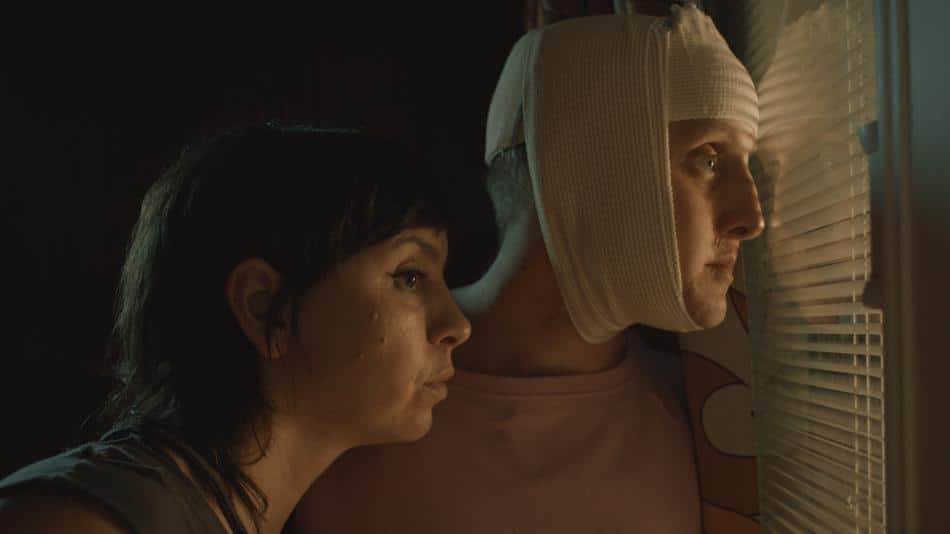
A moving, deeply personal, and autobiographical dramedy, Funny Face retells talented trans filmmaker Jude Hope Harris’ experience directly following her ten-hour facial feminization surgery with the support of her brother and girlfriend, played by their real-life counterparts.
The film follows Sophie, returning home after her grueling surgery, still reeling in pain and dealing with the effects of anesthesia. At home to greet and care for her are Sophie’s girlfriend, Morgan, a queer actor, and her brother, Randy, a country singer. Meeting for the first time, Morgan and Randy bond over their mutual dislike of Sophie’s unhelpful home nurse, Donna.
Rather than offer kind, empathetic care, Donna acts like she is too busy with her own personal drama to give a damn about Sophie. She seems far more annoyed by the situation than invested in Sophie’s healing. And she repeatedly misgenders Sophie, regardless of how often Morgan emphatically corrects her.
Together, the trio endures a difficult night with humor, love, music, and grace.
While Funny Face remains lighthearted, it nevertheless conveys its messages of love, identity, and respect with penetrating ease and tremendous heart. It’s grounded in emotional honesty and is deeply resonant, speaking to anyone who feels you can’t have acceptance without understanding. Funny Face doesn’t demand you identify with what it’s like to be a trans person or that you agree with the choices made by its main character.
Instead, it only asks that you embrace those struggling on their personal journey with love and compassion and allow others to make the choices best suited for themselves, even if they don’t align with your personal worldview.
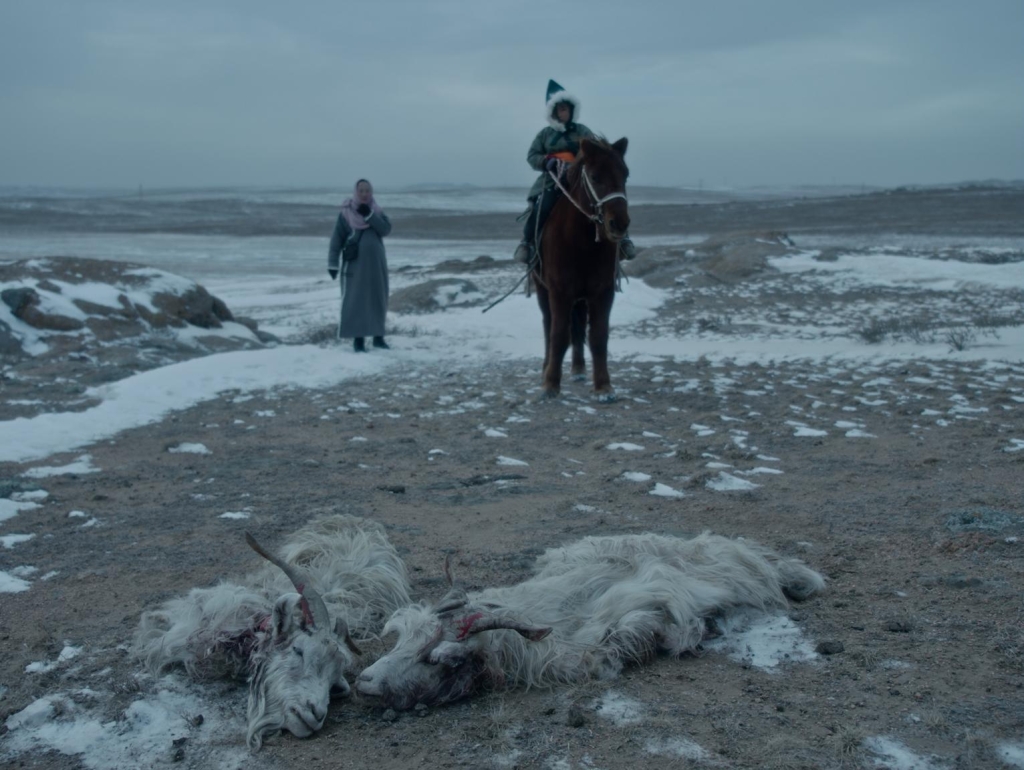
Against a frigid Winter landscape in Mongolia, a woman braves the treacherous conditions to search for something. A voiceover explains that her dad would go out drinking, and he disappeared one night during a blizzard, only to later be carried home by a horse as if he’d fallen asleep.
We then rewind to meet a very pregnant woman and her 8-year-old daughter. Living an isolated existence as poor sheepherders in a sparsely furnished shack, an untimely Winter storm has put their family and livelihood in jeopardy. The woman did not have time to put the flock away before the snow set in, and now the herd has gone missing.
The woman goes out to look for the missing animals, but evidence of wolves only exasperates her worst fears.
Though the husband is never shown or overtly spoken of, we get hints that he’s not the most nurturing and reliable provider and partner. In a powerful scene, the daughter asks the mom what happens to people after they die. The mom explains the philosophy of reincarnation, emphasizing that you may come back as an object, part of nature, or, if you’ve lived a very good life, you might even return in human form.
When the daughter asks, “Where would Papa go?” the mother fails to answer, and the silence is palpable and telling.
Praying every night for protection and battling the elements and the literal wolves at her door with stoic bravery and relentless courage, the mother taps into her innate connection to nature to survive and protect her children without male support.
Xiaoxuan Jiang is a filmmaker born and raised in Inner Mongolia, China. She grew up listening to folk tales from the grasslands and local customs of shepherd communities. In her Director’s Statement, she speaks of her inspiration for the film.
“Last winter, on my way to visit a herder family on their ranch, I saw a dead horse not far from the road.
“It was a mare that died after a miscarriage; her half-formed foal lay stiffly beside her. I could imagine the mare’s desperate struggles having to face birth and death at the same time all by herself. That moment struck me profoundly and made me wonder if females across species may share something deeper than they knew.”
“With that image deeply ingrained in my mind ever since, I was inspired to write a story that explores the relationship between femininity, animals, nature, and mysticism.”
Jiang goes on to explain:
“I want to try showing the other side of traditional folk tales. If the typical story of Mongolian men is of a warrior riding his beloved steed and sacrificing himself in battle, then I want to talk about the story of the women who were left behind—their anxieties about surviving in the cold wilderness.”
Follow Us!